
MOPI Executive Director Visits Healthcare+ Expo Taiwan, Eyes Taiwan for API and Biologics Innovation to Strengthen Domestic Drug Manufacturing
2025-07-12
📣Unlock New BioTech Partnerships in Asia!
【2025 Healthcare+ Expo Registration Opens Now ▸ https://ibmi.pse.is/7mn2dd 】
As global pharmaceutical supply chains undergo restructuring amid digital transformation waves, Malaysia's pharmaceutical industry faces a critical inflection point marked by mounting pressures and strategic opportunities. Confronting dual challenges of heavy API import reliance and multinational dominance, the Malaysian government has intensified policy support in recent years with three clear objectives: strengthening domestic pharmaceutical autonomy, building a resilient supply chain, and positioning ASEAN as a springboard for global partnerships.
Recognizing Taiwan’s strengths in APIs, biologics, and smart manufacturing, Billy Urudra, Executive Director of the Malaysian Organization of Pharmaceutical Industries (MOPI), visited Taiwan during the 2024 Healthcare+ Expo Taiwan. His goal is to foster collaboration with Taiwanese companies, enhance regional pharmaceutical competitiveness, and unlock the vast commercial potential of the ASEAN market.
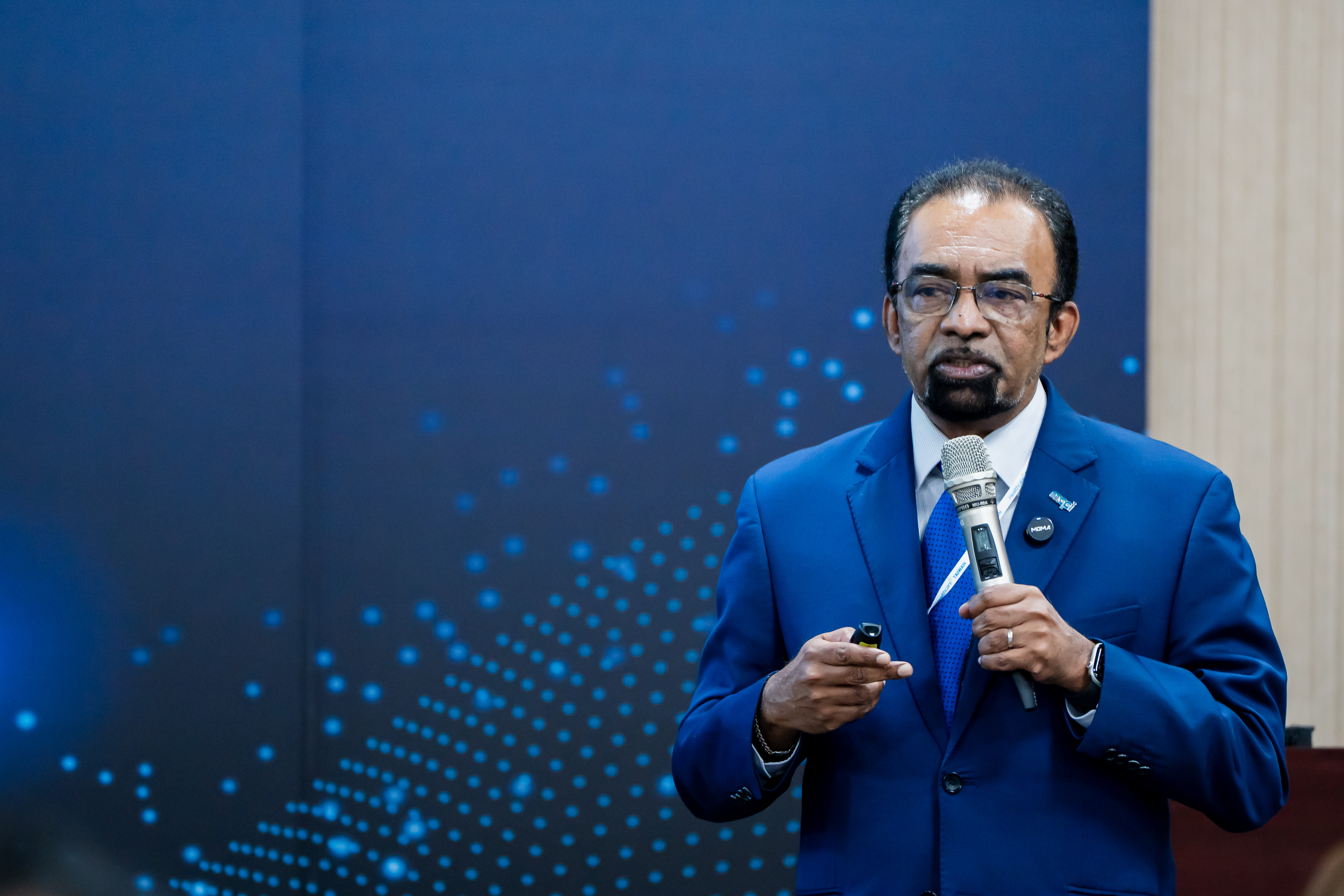
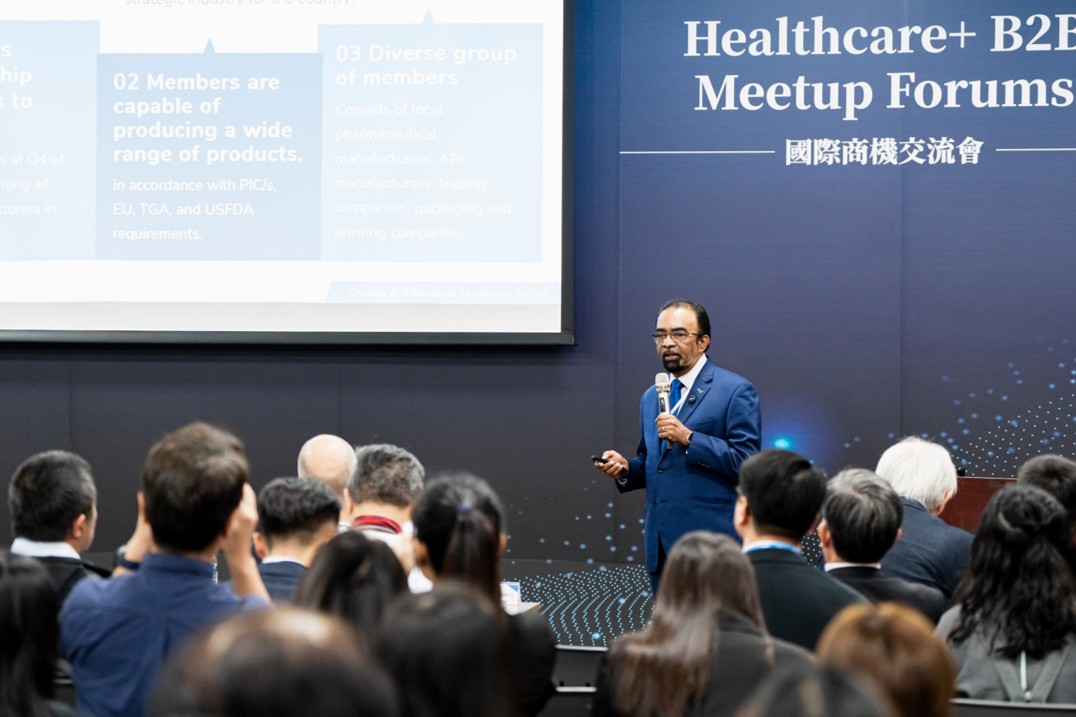
Billy Urudra, Executive Director of the Malaysian Organization of Pharmaceutical Industries (MOPI), advocated for Taiwanese pharmaceutical companies to explore opportunities within the ASEAN market at the 2024 Healthcare+ Expo Taiwan.
In 2023, Malaysia’s pharmaceutical market reached USD 11.8 billion, with the generic drug accounting for approximately USD 3 billion and the original drug market valued at USD 6 billion. However, up to 95% of APIs are still imported, primarily from India and China, leaving local manufacturers vulnerable at the lower end of the value chain and highly sensitive to external market risks.
Beyond supply chain vulnerabilities, Malaysian pharmaceutical firms also face intense competition from global multinationals and low-cost Indian generic drugs. In response, the Malaysian government has launched an industry transformation strategy, including measures to increase the market share of local generics, strengthen GMP standards, and implement attractive procurement policies. These initiatives guarantee initial government orders for investors, easing financial pressures and encouraging domestic production. Kuala Lumpur has set a clear target: to locally manufacture 60% to 70% of medicines listed on the national essential medicines list, presenting a prime opportunity for Taiwanese pharmaceutical companies to enter the market.
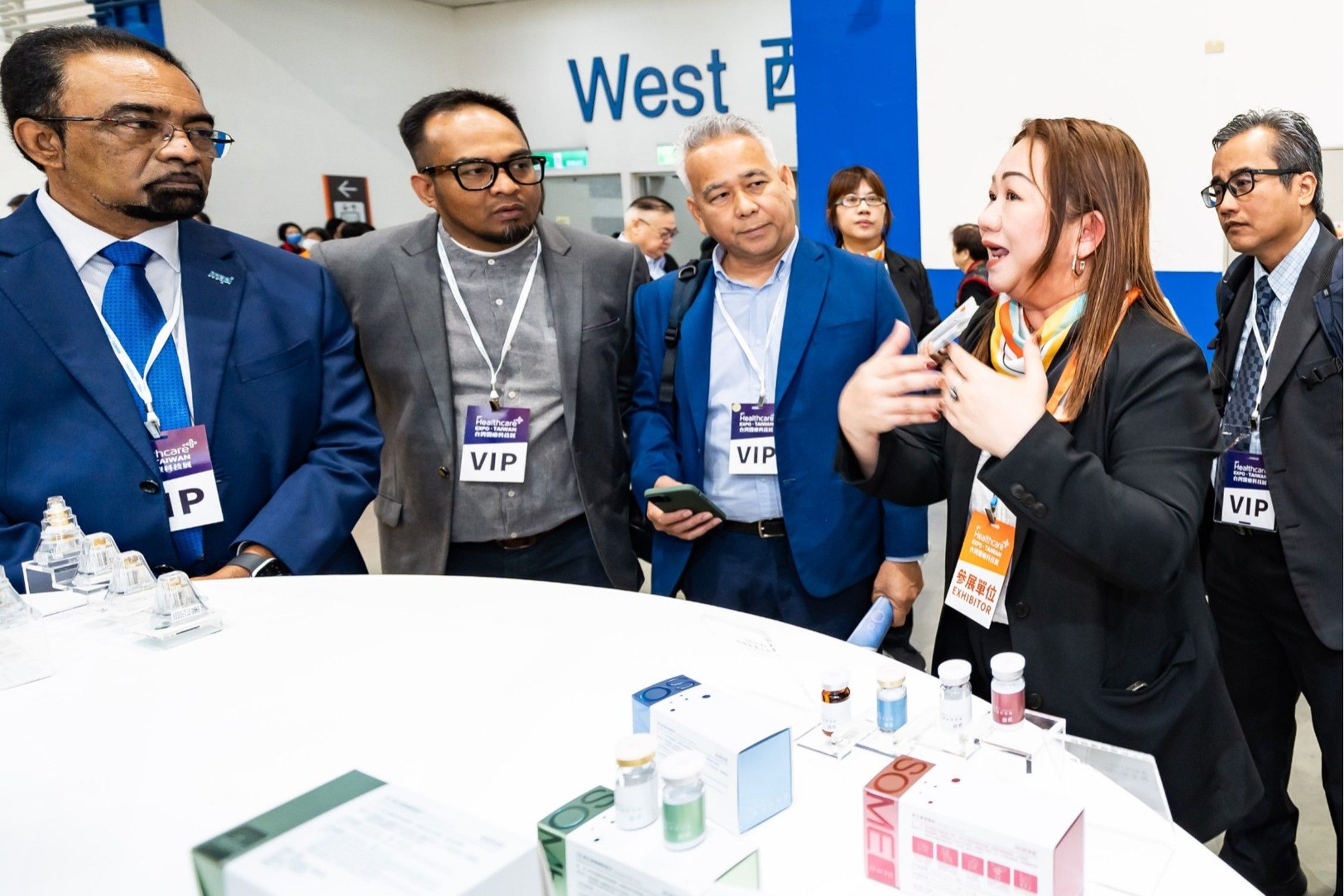
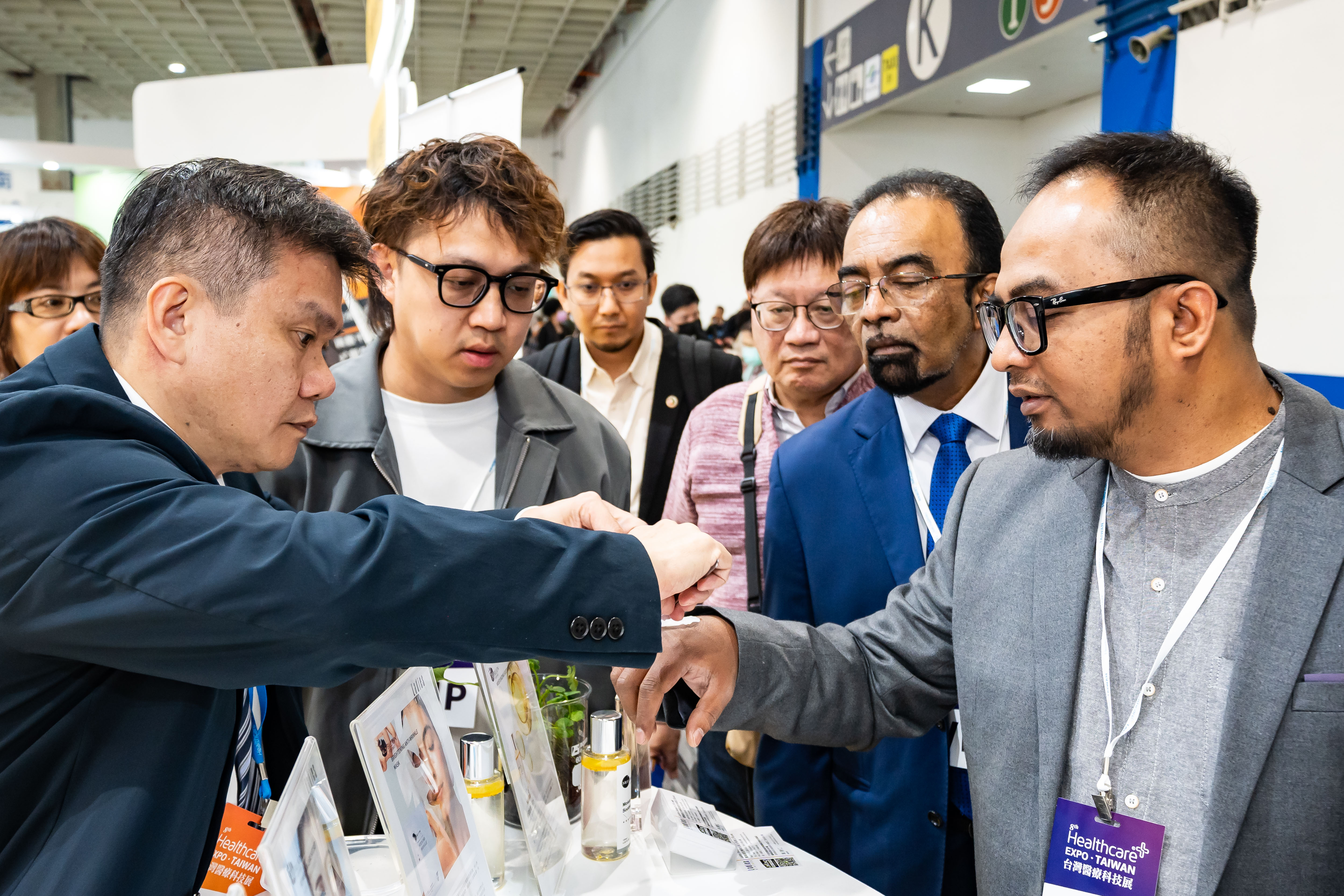
Billy Urudra observed the advancements and innovations presented within the pharmaceutical and healthcare sectors during the Expo.
Taiwan’s advanced API production, innovative biologics, clinical research expertise, and experience in Industry 4.0 are exactly what Malaysia needs and hopes to learn from. The focus of this cross-border cooperation is not limited to technology transfer. As the ASEAN region’s pharmaceutical hub, Malaysia is attracting global attention-not only from tech giants like Amazon and Google, but also from leading pharmaceutical companies worldwide. The country is evolving beyond its traditional contract manufacturing role to become a hotspot for pharmaceutical investment. Taiwanese enterprises, by partnering with us, can gain access to the ASEAN-10 market and benefit from government incentives and international certifications.
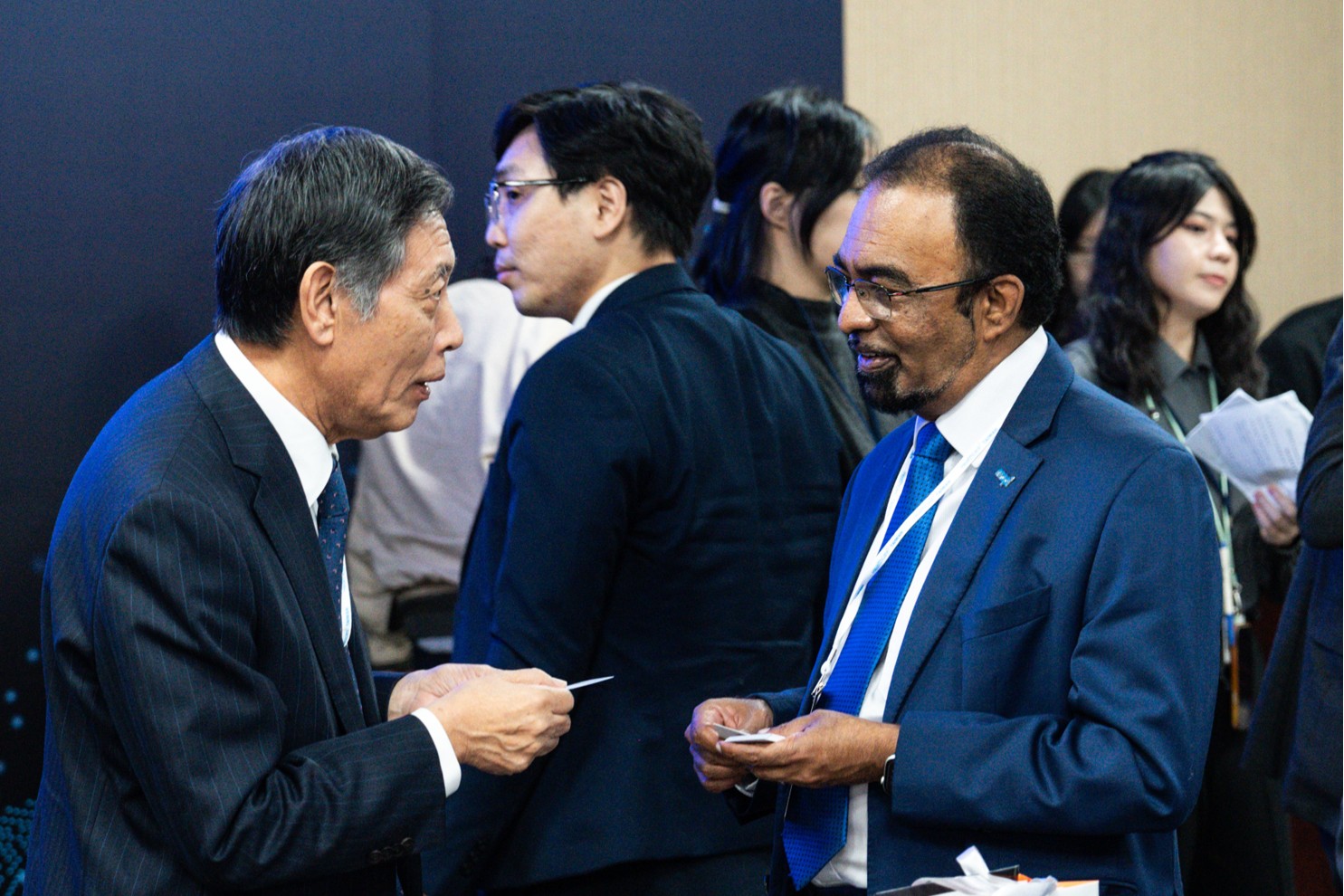
Billy Urudra and decision-makers from Taiwanese pharmaceutical industries engaged in discussions and networking during the 2024 Healthcare+ Expo Taiwan, exploring potential collaborations and partnerships.
With a 43-year history and 51 member companies, MOPI covers a diverse product range-including prescription drugs, OTC products, and vaccines. Many of its products meet international standards, with some already certified for the EU and US markets, making MOPI a reliable, low-risk partner for Taiwanese firms.
This “Southbound Alliance” is more than a market expansion-it is a strategic partnership for industrial upgrading on both sides. Urudra’s primary mission in Taiwan is to establish direct dialogue and cooperation with local industry players. He hopes that by integrating resources and complementing each other’s strengths, the two sides can build a more resilient regional pharmaceutical supply chain in the post-pandemic era and jointly open a new chapter in the rapidly growing ASEAN market.